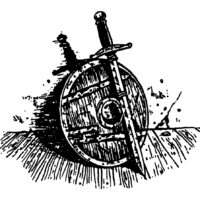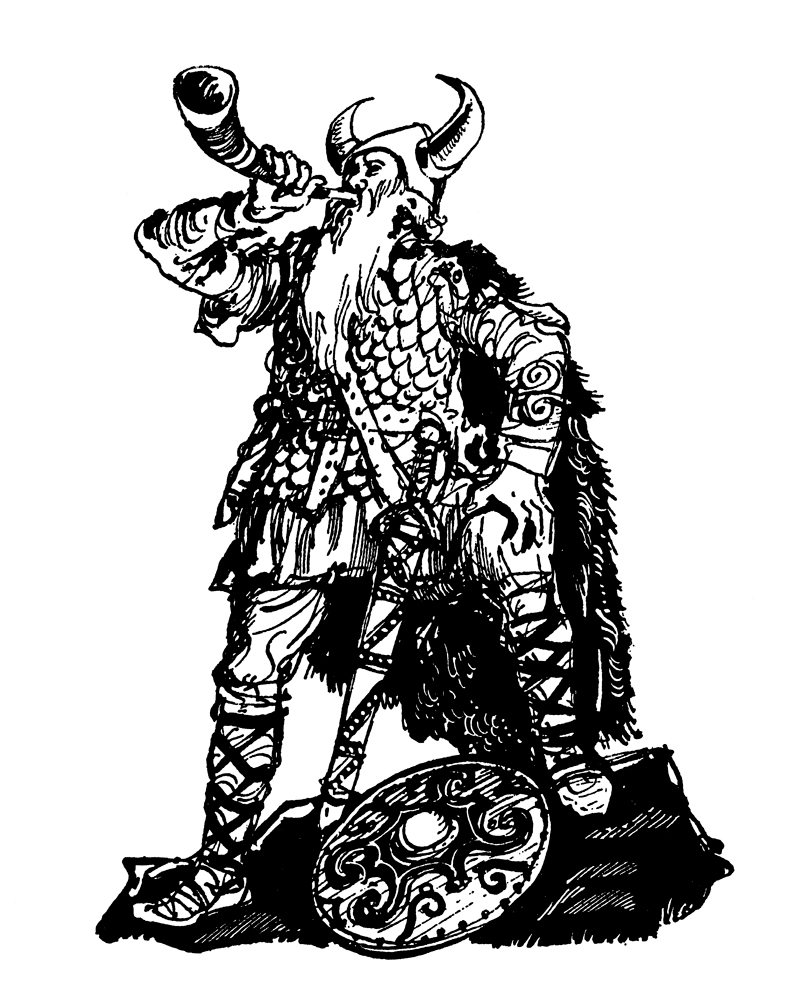It’s silly to covet a piece of jewellery. When would you really wear Marie-Antoinette’s necklace or the Hope Diamond? Even the glittering parures paraded by red-carpet celebrities are borrowed, insured for millions and necessitate the accompaniment of burly heavies all the way back to the soft obscurity of velvet and safe. Ridiculous. But – all the same – how lovely it would be, just once, for a few minutes, to hold in one’s hands the ring of the Aquilas.
A ring is the story that has no end, a magical talisman. For the likes of Wagner or Tolkien it’s nothing but trouble, but for Rosemary Sutcliff it is benign, even life-affirming. Hers is a heavy gold man’s ring, its bezel set with a flawed emerald into which is carved a dolphin. Fashioned long ago in Rome, it is already slightly battered when, in The Eagle of the Ninth, it is handed back to young Marcus Flavius Aquila by a tribal warlord who had taken it from his murdered father. Over the succeeding centuries and another six magnificent novels it is stolen, returned, lost, clumsily enlarged, rediscovered and proudly worn by generations of his descendants. And all the while his bloodline is renewed and enriched, throughout the great waves of invasion, resistance, settlement, intermarriage and miscegenation that followed the departure of the Legions.
The series that began in the Sussex downland has, by the last two books, moved to the north-west coast of England and the Hebridean islands, where the Vikings are expanding their empire. In Sword Song (published posthumously, in 1997) our hero Bjorn Sigurdson is a young Norwegian with a lot to learn. No sooner has he arrived at Rafnglas, where his brother has settled, than he drowns a man who had kicked his dog. He hadn’t meant to drown him, and he’d had no idea that the man was a Christian monk, but five years of banishment is his fate and he sails away to the big bad Viking city of Dublin, where ale-houses are as thick on the ground as autumn leaves, and where he is comprehensively mugged.
Now his adventures really begin, working on the speedy and nimble longships, pillaging a bit, feasting, trading, raiding and surviving spectacular storms, learning all the while from his elders who, even in the most impenetrable fogs, can navigate ‘by wave-patterns and the sight and sound of the sea’, and who know the secrets of deep water through their eyes and ears and the soles of their feet. But it is only when he is shipwrecked off the Welsh coast and encounters the beautiful, beleaguered Angharad that he really grows up. She retrieves from a silken string around her neck a glinting green ring and, with a shock, we recognize her as the descendant of the young Roman soldier who once sought his lost father, so many centuries earlier.
Two hundred years and several generations on, those seafaring days are just the stuff of legend for Bjorn and Angharad’s descendant. Bjorni, or Little Bear, lives in the household of the semi-mythical Jarl Buthar above Buttermere, the lake which still bears his name. The Jarl’s figurehead, hung high in the smoky rafters of his Hearth Hall, is all that physically remains of the longships, though their stories live on in the music of the harpers, and still, in extremis, they call on the old gods, on Thor and on Odin. It is twenty years after the Battle of Hastings, but the Normans have still not conquered the mountain fastness of Cumberland, nor have they written of it in their Domesday Book, for the last of the unassimilated Vikings have always held out against their frequent attacks. This ongoing defence of their stronghold, their traditions and their way of life is the background to The Shield Ring (1956).
The Vikings have left little mark on the British landscape (though more underneath it) but their language survives – in the days of the week, of course, and in the hard Norse syllables describing Lakeland: fell, force, beck and thwaite; ness and kirk, rill and rigg; tarn, thorp, dale and skull. And from their sagas and oral traditions come many of the most thrilling, shattering passages in these last two books. As always, the stories are rooted in fact. The mighty Helm Wind, for example, the only named wind in these islands, is as respected for its lethal strength today as when, in The Shield Ring, it sweeps suddenly over Cross Fell, mowing down the Norman cavalry by its immense force as overwhelmingly as Pharaoh’s armies had once been swallowed by the Red Sea.
In the final chapter the Jarl’s son, Aikin the Beloved, has died in the last great battle. Now he lies in the Hearth Hall, where the guttering torchlight plays ‘on the smoke-dimmed shields that hung from the house-beam . . . bringing the snarling mask of the ancient figurehead leaping forward out of obscurity; then sinking so that all the hall was lost again save for the flame-lit ring of warriors about their leader’s body’. The next day, he is carried up to his ‘howe-laying’ in the place still known as Aiken’s Knoll, on the fells above Keskadale, ‘And his sword-brothers piled the stones high, and left him to the wind and the rain and the curlews calling.’

And, at the very end, Bjorni leaves the settlement, along with the Saxon orphan Frytha who has lived and fought alongside him, dressed his war wounds and saved his life. They make for his forefathers’ settlement high up in Eskdale, just below the already ancient Roman fort at Hardknott on the slopes of Scafell. To leave them there, among the little Herdwick sheep, with the emerald ring and a harp and a jewelled dagger whose histories we know well – better than they do themselves – is to experience that poignant sense of bereavement that only the very finest fiction can evoke.
Extract from Slightly Foxed Issue 71 © Sue Gaisford 2021
About the contributor
Sue Gaisford has spent some time in the Dark Ages recently and finds them marginally preferable to the twenty-first century.






Dear Slightly Foxed Team
I was absolutely delighted to receive “Sword Song” and “The Shield Ring” this week. As always, the quality of these Slightly Foxed volumes is unparalleled and the content, of course, is wonderful, nostalgic and a pure delight. I hope you will continue to delve for further forgotten gems and bring them back into the light. Thank you!
With best wishes
Andrew